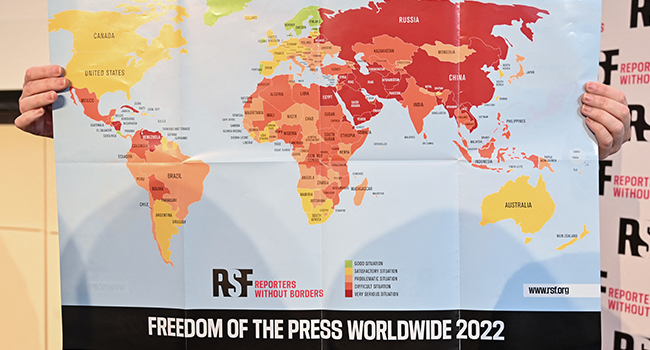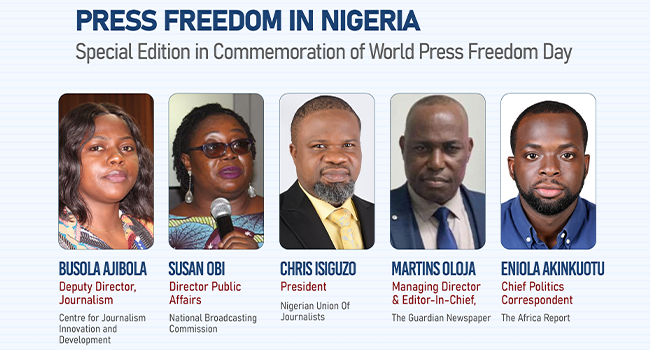
Nigeria dropped to 129 from 120 in the latest ranking of press freedom across 180 countries.
According to the ranking, which is compiled by Reporters without borders, Nigeria is “one of West Africa’s most dangerous and difficult countries for journalists, who are often watched, attacked, arbitrarily arrested and even killed.”
It noted that while the country has a rich and diverse media landscape, the level of government interferences in the news media is significant.
READ ALSO: Media Must Be Sensitive To Nigeria’s Current Situation, Buhari Tells Journalists
“It can involve pressure, harassment of journalists and media outlets, and even censorship,” the report noted.
“In 2021, the Peoples Gazette news site was blocked after it revealed that privileges were given to the son of a member of the president’s inner circle. Twitter was suspended for seven months after it deleted one of the president’s tweets. Media outlets were ordered to delete their Twitter accounts as a ‘patriotic gesture’.”
While Nigeria’s constitution protects freedom of expression and opinion, there are many laws that make it possible to obstruct the work of journalists.
“Several very dangerous laws regulating social media have been proposed in recent years, causing an outcry,” the report said.
Meanwhile, Norway was ranked as the country with the most press freedom, while North Korea’s press was regarded as the least free.
The ranking is calculated by tallying “a quantitative tally of abuses against journalists in connection with their work, and against media outlets” and “a qualitative analysis of the situation in each country or territory based on the responses of press freedom specialists (including journalists, researchers, academics and human rights defenders) to an RSF questionnaire available in 23 languages.”



